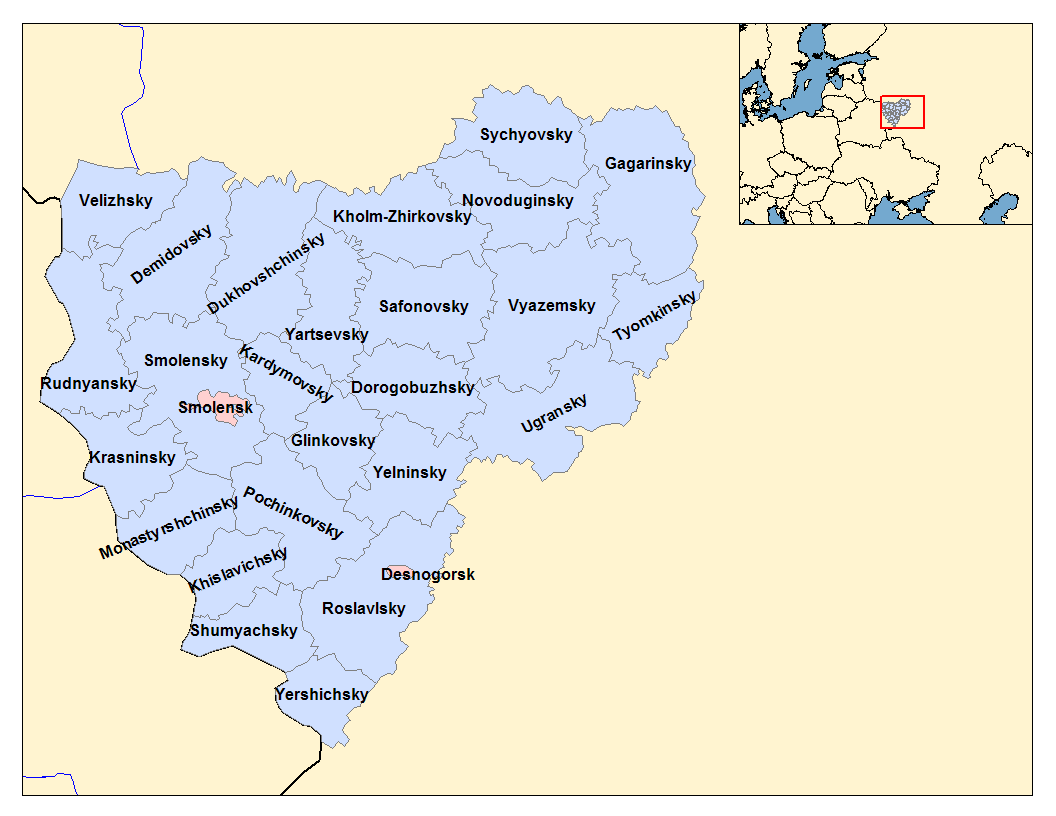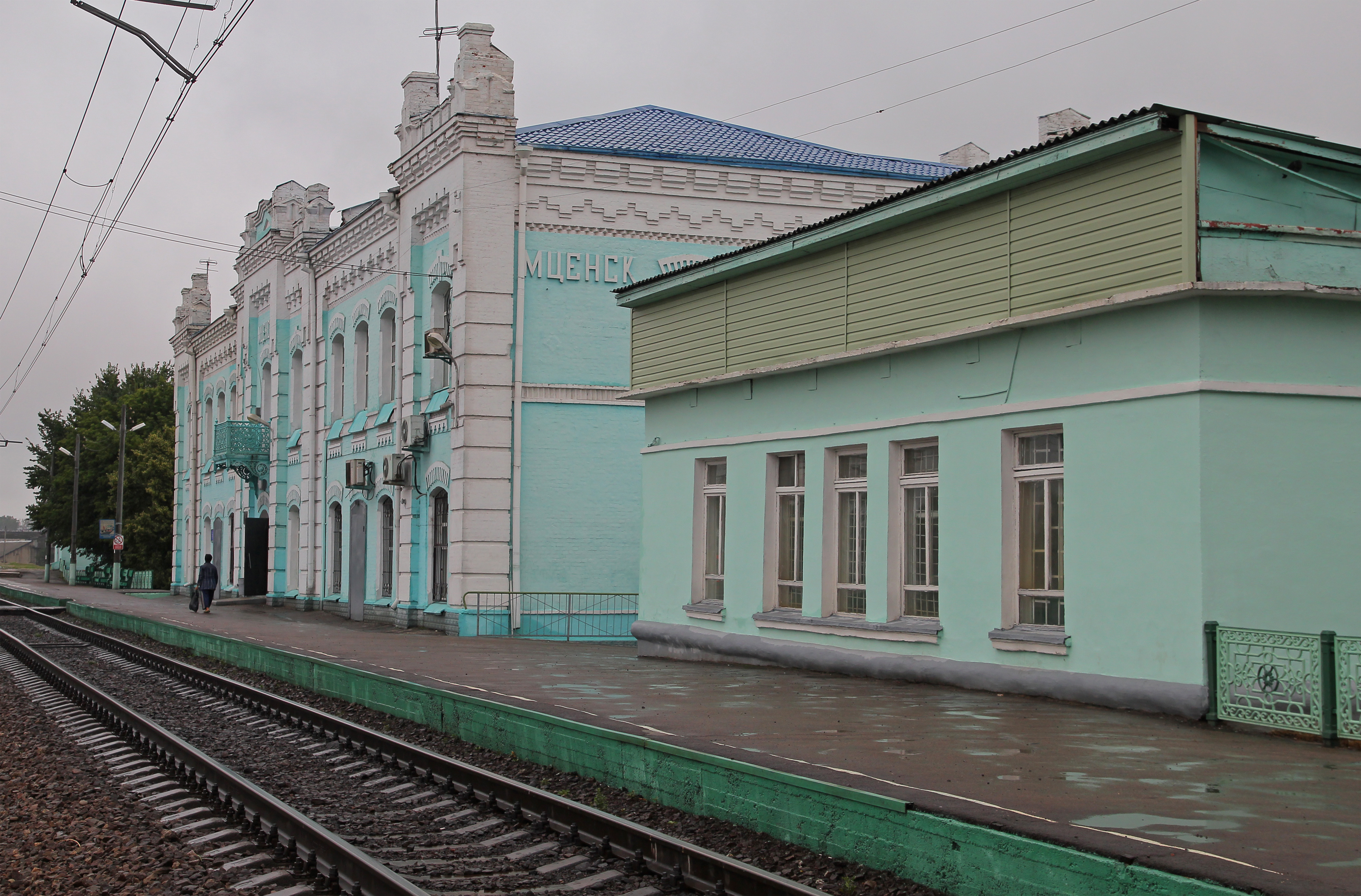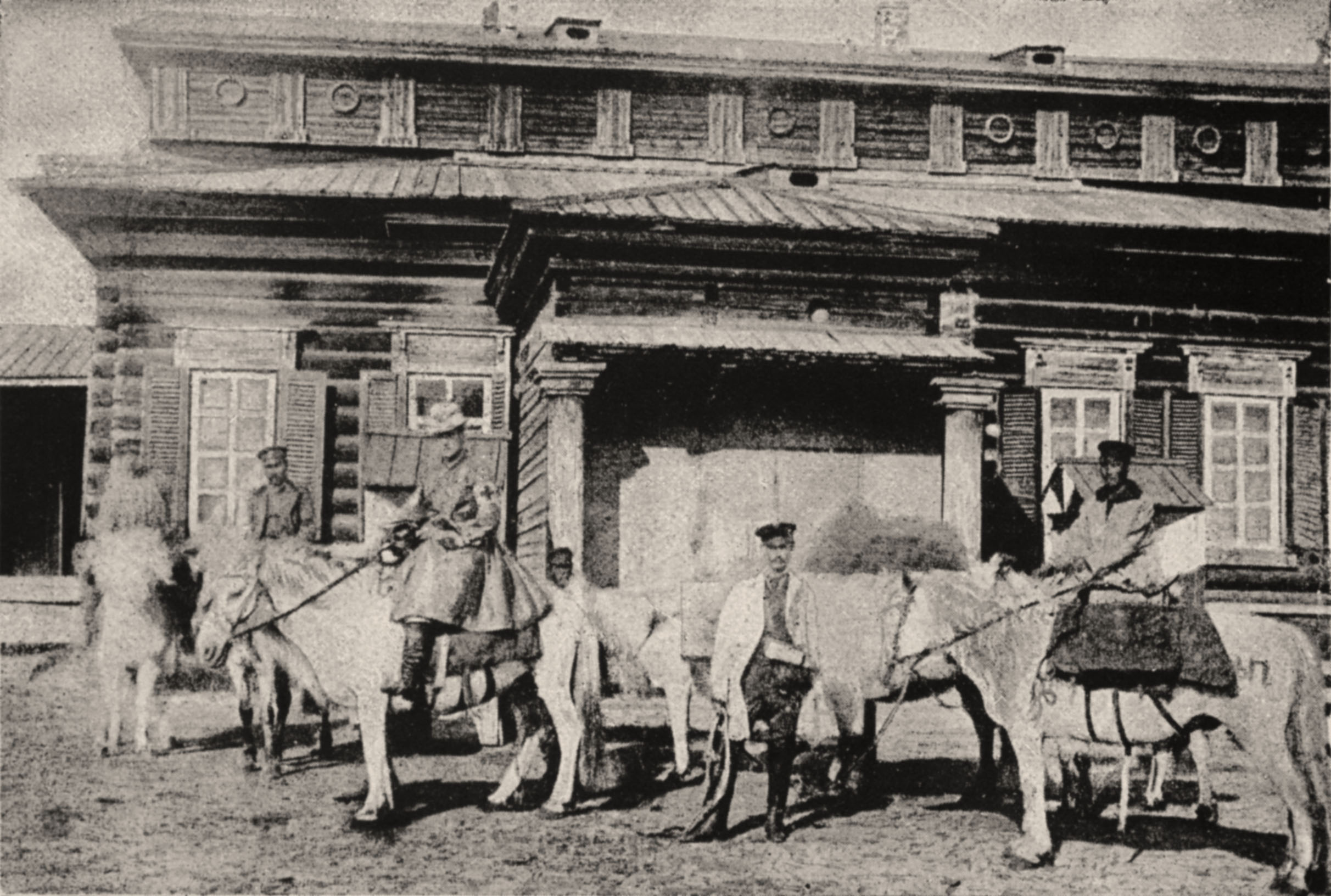|
Pyotr Alexeyevich Alexeyev
Pyotr Alexeyevich Alexeyev (russian: Пётр Алексеевич Алексеев; – ) was a Russian revolutionary, one of the first factory workers to join the revolutionary underground, whose speech at his trial was distributed in thousands of copies. Early life Alexeyev was born into a peasant family in a village in Smolensk province in south west Russia, and was sent to work in a textile factory at the age of nine. At the age of around 16 or 17, he taught himself to read and write. In 1869, he joined a narodnik circle in Moscow, organised by Sophia Bardina, which conducted propaganda among Moscow workers. The circle named itself the All-Russian Socialist Revolutionary Organisation. Alexeyev's role was to move from one town or village to another, take a job, talk to fellow workers, leave behind illegal literature, and move on. Arrested in February 1875, he was held in prison for two years, then arraigned with other members of the circle at the Trial of the 50, in March 1 ... [...More Info...] [...Related Items...] OR: [Wikipedia] [Google] [Baidu] |
Russians
, native_name_lang = ru , image = , caption = , population = , popplace = 118 million Russians in the Russian Federation (2002 ''Winkler Prins'' estimate) , region1 = , pop1 = approx. 7,500,000 (including Russian Jews and Russian Germans) , ref1 = , region2 = , pop2 = 7,170,000 (2018) ''including Crimea'' , ref2 = , region3 = , pop3 = 3,512,925 (2020) , ref3 = , region4 = , pop4 = 3,072,756 (2009)(including Russian Jews and Russian Germans) , ref4 = , region5 = , pop5 = 1,800,000 (2010)(Russian ancestry and Russian Germans and Jews) , ref5 = 35,000 (2018)(born in Russia) , region6 = , pop6 = 938,500 (2011)(including Russian Jews) , ref6 = , region7 = , pop7 = 809,530 (2019) , ref7 ... [...More Info...] [...Related Items...] OR: [Wikipedia] [Google] [Baidu] |
Smolensk Oblast
Smolensk Oblast (russian: Смоле́нская о́бласть, ''Smolenskaya oblast''; informal name — ''Smolenschina'' (russian: Смоле́нщина)) is a federal subject of Russia (an oblast). Its administrative centre is the city of Smolensk. As of the 2010 Census, its population was 985,537. Geography The oblast was founded on 27 September 1937.Исполнительный комитет Смоленского областного совета народных депутатов. Государственный архив Смоленской области. "Административно-территориальное устройство Смоленской области. Справочник", изд. "Московский рабочий", Москва 1981. Стр. 8 It borders Pskov Oblast in the north, Tver Oblast in the northeast, Moscow Oblast in the east, Kaluga Oblast in south, Bryansk Oblast in the southwest, and Mogilev and Vitebsk Oblast ... [...More Info...] [...Related Items...] OR: [Wikipedia] [Google] [Baidu] |
Narodniks
The Narodniks (russian: народники, ) were a politically conscious movement of the Russian intelligentsia in the 1860s and 1870s, some of whom became involved in revolutionary agitation against tsarism. Their ideology, known as Narodism, Narodnism or (russian: народничество; , similar to the German ), was a form of agrarian socialism though is often misunderstood as populism. The (; meaning 'going to the people') campaigns were the central impetus of the Narodnik movement. The Narodniks were in many ways the intellectual and political forebears and, in notable cases, direct participants of the Russian Revolution—in particular of the Socialist-Revolutionary Party, which went on to greatly influence Russian history in the early 20th century. History Narodnichestvo as a philosophy was influenced by the works of Alexander Herzen (1812–1870) and Nikolay Gavrilovich Chernyshevsky (1828–1889), whose convictions were refined by Pyotr Lavrov (1823–1900) and ... [...More Info...] [...Related Items...] OR: [Wikipedia] [Google] [Baidu] |
Sophia Bardina
Sophia Illarionovna Bardina (15 May 1853 Morshansk, Russia - 26 April 1883, Geneva, Switzerland) was a revolutionary from the Russian Empire. Biography She was born to a violent father, and turned to her studies for solace. Her family were landowners in Tver province, so she decided to study agronomy so that she could farm the land, rather than live off peasant labour. Bardina went to Moscow and became friends with Olga Liubatovich. Together, they went to study in Zurich., where Bardina was a leading figure in the Fritsche circle of young feminist Russian students, among whom she was known as 'Auntie', "on account of her reliability and diplomatic talents." It was she who introduced Vera Figner and her sister Lydia to radical political ideas. Vera Figner was later the most famous terrorist at large in Russia. In 1873, the Russian government ordered all women students in Zurich to return home. Bardina returned to Moscow, and in 1874, and obtained a job in a factory, hoping to ... [...More Info...] [...Related Items...] OR: [Wikipedia] [Google] [Baidu] |
Pall Mall Gazette
''The Pall Mall Gazette'' was an evening newspaper founded in London on 7 February 1865 by George Murray Smith; its first editor was Frederick Greenwood. In 1921, '' The Globe'' merged into ''The Pall Mall Gazette'', which itself was absorbed into ''The Evening Standard'' in 1923. Beginning late in 1868, at least through the 1880s, a selection or digest of its contents was published as the weekly ''Pall Mall Budget''. History ''The Pall Mall Gazette'' took the name of a fictional newspaper conceived by W. M. Thackeray. Pall Mall is a street in London where many gentlemen's clubs are located, hence Thackeray's description of this imaginary newspaper in his novel ''The History of Pendennis'' (1848–1850): We address ourselves to the higher circles of society: we care not to disown it—''The Pall Mall Gazette'' is written by gentlemen for gentlemen; its conductors speak to the classes in which they live and were born. The field-preacher has his journal, the radical free-thinker ... [...More Info...] [...Related Items...] OR: [Wikipedia] [Google] [Baidu] |
Vladimir Lenin
Vladimir Ilyich Ulyanov. ( 1870 – 21 January 1924), better known as Vladimir Lenin,. was a Russian revolutionary, politician, and political theorist. He served as the first and founding head of government of Soviet Russia from 1917 to 1924 and of the Soviet Union from 1922 to 1924. Under his administration, Russia, and later the Soviet Union, became a one-party socialist state governed by the Communist Party. Ideologically a Marxist, his developments to the ideology are called Leninism. Born to an upper-middle-class family in Simbirsk, Lenin embraced revolutionary socialist politics following his brother's 1887 execution. Expelled from Kazan Imperial University for participating in protests against the Russian Empire's Tsarist government, he devoted the following years to a law degree. He moved to Saint Petersburg in 1893 and became a senior Marxist activist. In 1897, he was arrested for sedition and exiled to Shushenskoye in Siberia for three years, where he married ... [...More Info...] [...Related Items...] OR: [Wikipedia] [Google] [Baidu] |
Katorga
Katorga ( rus, ка́торга, p=ˈkatərɡə; from medieval and modern Greek: ''katergon, κάτεργον'', "galley") was a system of penal labor in the Russian Empire and the Soviet Union (see Katorga labor in the Soviet Union). Prisoners were sent to remote penal colonies in vast uninhabited areas of Siberia and Russian Far East where voluntary settlers and workers were never available in sufficient numbers. The prisoners had to perform forced labor under harsh conditions. History ''Katorga'', a category of punishment within the judicial system of the Russian Empire, had many of the features associated with labor-camp imprisonment: confinement, simplified facilities (as opposed to prisons), and forced labor, usually involving hard, unskilled or semi-skilled work. Katorga camps were established in the 17th century by Alexis of Russia in newly conquered, underpopulated areas of Siberia and the Russian Far East - regions that had few towns or food sources. Despite the ... [...More Info...] [...Related Items...] OR: [Wikipedia] [Google] [Baidu] |
Mtsensk
Mtsensk (russian: Мценск) is a town in Oryol Oblast, Russia, located on the Zusha River (a tributary of the Oka) northeast of Oryol, the administrative center of the oblast. Population: 28,000 (1970). History It was first mentioned in the Nikon Chronicle in 1146 as a part of the Principality of Chernigov. The name comes from the Mtsena River, a tributary of the Zusha, beside which the fortress stood. In 1238, Mtsensk was destroyed by Batu Khan. Since 1320, it was under the rule of Lithuania, eventually becoming a part of the Muscovy in 1505. Since the beginning of the 19th century, Mtsensk was rapidly developing as an industrial town. During Operation Barbarossa, German armoured forces captured the town in the fall of 1941. In particular, troops of the 3rd Panzer Division, 4th Panzer Division, and Infantry Regiment Großdeutschland saw combat in the immediate vicinity. During the Battle of Kursk in 1943, Mtsensk served as the primary war zone. On 20 July 1943, Mtse ... [...More Info...] [...Related Items...] OR: [Wikipedia] [Google] [Baidu] |
Tsar
Tsar ( or ), also spelled ''czar'', ''tzar'', or ''csar'', is a title used by East Slavs, East and South Slavs, South Slavic monarchs. The term is derived from the Latin word ''Caesar (title), caesar'', which was intended to mean "emperor" in the European medieval sense of the term—a ruler with the same rank as a Roman emperor, holding it by the approval of another emperor or a supreme ecclesiastical official (the Pope or the Ecumenical Patriarch)—but was usually considered by western Europeans to be equivalent to "king". It lends its name to a system of government, tsarist autocracy or tsarism. "Tsar" and its variants were the official titles of the following states: * Bulgarian Empire (First Bulgarian Empire in 681–1018, Second Bulgarian Empire in 1185–1396), and also used in Kingdom of Bulgaria, Tsardom of Bulgaria, in 1908–1946 * Serbian Empire, in 1346–1371 * Tsardom of Russia, in 1547–1721 (replaced in 1721 by ''imperator'' in Russian Empire, but still re ... [...More Info...] [...Related Items...] OR: [Wikipedia] [Google] [Baidu] |
Alexander II Of Russia
Alexander II ( rus, Алекса́ндр II Никола́евич, Aleksándr II Nikoláyevich, p=ɐlʲɪˈksandr ftɐˈroj nʲɪkɐˈlajɪvʲɪtɕ; 29 April 181813 March 1881) was Emperor of Russia, Congress Poland, King of Poland and Grand Duke of Finland from 2 March 1855 until Assassination of Alexander II of Russia, his assassination in 1881. Alexander's most significant reform as emperor was the emancipation reform of 1861, emancipation of Serfdom in Russia, Russia's serfs in 1861, for which he is known as Alexander the Liberator ( rus, Алекса́ндр Освободи́тель, r=Aleksándr Osvobodytel, p=ɐlʲɪˈksandr ɐsvəbɐˈdʲitʲɪlʲ). The tsar was responsible for other reforms, including reorganizing the judicial system, setting up elected local judges, abolishing corporal punishment, promoting local self-government through the ''zemstvo'' system, imposing universal military service, ending some privileges of the nobility, and promoting university e ... [...More Info...] [...Related Items...] OR: [Wikipedia] [Google] [Baidu] |
Kara Katorga
Kara katorga (Russian: Карийская каторга, Kariyskaya katorga) was the name for a set of katorga prisons of extremely high security located along the Kara River in Transbaikalia (a tributary of the Shilka River, flowing into it at Ust-Karsk) and part of the system of Nerchinsk katorga. George Kennan noted in 1885, "The mines of Kara, which are the private property of his Imperial Majesty the Tsar, and are worked for his benefit, consist of a series of open gold placers." From south to north over 20 miles of the Kara River, they are Ust Kara, Lower Prison, Political Prison, Lower Diggings, Middle Kara, Upper Kara, and the Upper or Amurski Prison. The governor resides in the administrative center at Lower Diggings along with a company of soldiers and up to 300 convicts. The entire settlement area contained 1800 hard-labor convicts. It existed from 1838 to 1893. During 1873-1890 it held political prisoners. It was closed down because of the Kara Tragedy of 1889. ... [...More Info...] [...Related Items...] OR: [Wikipedia] [Google] [Baidu] |
Yakutsk
Yakutsk (russian: Якутск, p=jɪˈkutsk; sah, Дьокуускай, translit=Djokuuskay, ) is the capital city of the Sakha Republic, Russia, located about south of the Arctic Circle. Fueled by the mining industry, Yakutsk has become one of Russia's most rapidly growing regional cities, with a population of 355,443 at the 2021 Census. Yakutsk — where the average annual temperature is , winter high temperatures are consistently well below , and the record low is ,Погода в Якутске. Температура воздуха и осадки. Июль 2001 г. (in Russian) — is the coldest city in the world. Yakutsk is also the largest city located in |





.jpg)

